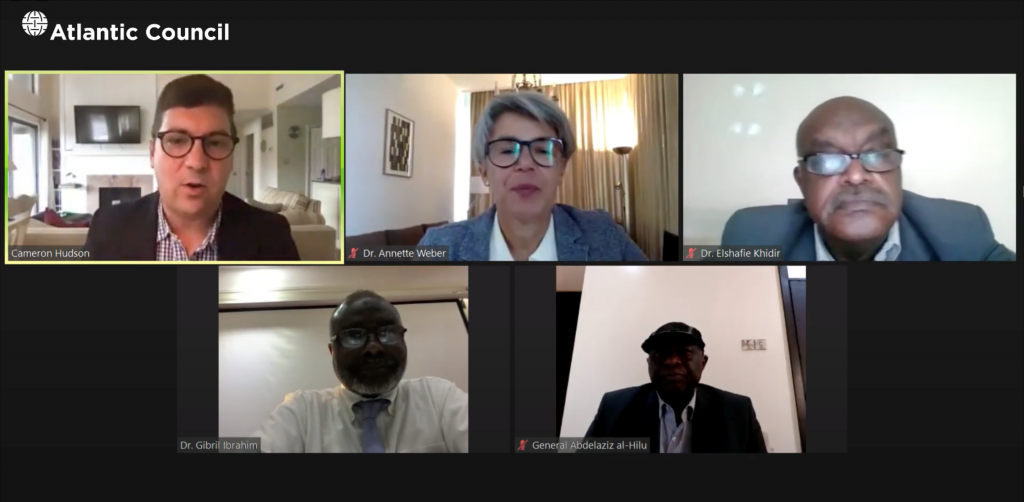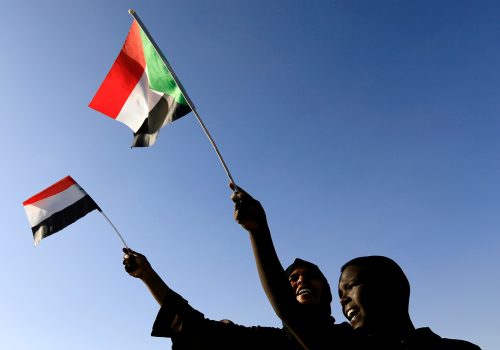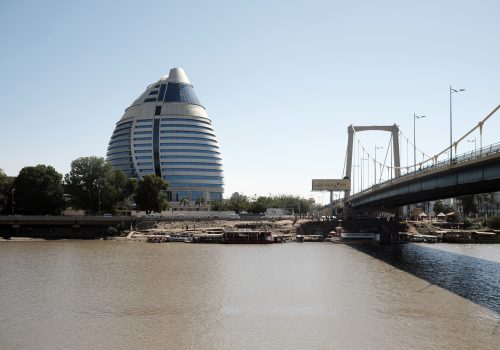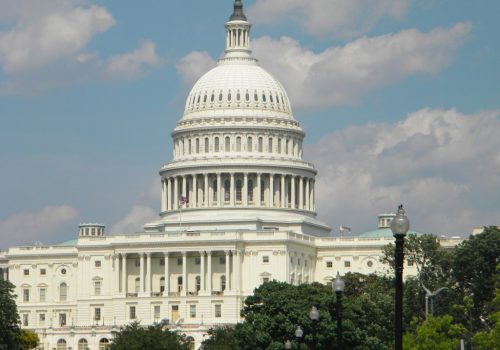On Tuesday, August 25, the Africa Center hosted a panel discussion on the status of and challenges to the peace process in Sudan. The panel featured General Abdelaziz al-Hilu, Chairman of the Sudan People’s Liberation Movement-North (SPLM-N); Dr. Gibril Ibrahim, Chairman of the Justice and Equality Movement; Dr. Elshafie Khidir, Sudanese political advisor and commentator; and Dr. Annette Weber, Senior Fellow at the German Institute for International and Security Affairs. The virtual conversation was moderated by Africa Center Senior Fellow Mr. Cameron Hudson, with opening remarks given by the Center’s Director of Programs and Studies Ms. Bronwyn Bruton.
Hudson began by framing the changing circumstances in Sudan, referencing US Secretary of State Mike Pompeo’s historic visit to Khartoum, occurring concurrently with the event. He argued that instead of pressuring and isolating Sudan as has been done in the past, the United States and international community are now actively engaged in celebrating Sudanese progress and ensuring that the demands of the revolution are met: namely freedom, peace, and justice. Of course, challenges remain. For the civilian-led transitional government at the helm, the peace process is a top priority, but an agreement remains elusive, just as violence ticks up across Darfur, the Nuba Mountains, and Sudan’s eastern regions.
Reflecting on the peace process, armed movement leaders General al-Hilu and Dr. Ibrahim voiced differing perspectives. Dr. Ibrahim spoke with a plainly optimistic tone, noting that “the scope of agreements we have been able to negotiate is unprecedented,” citing breakthroughs on land rights, the status of the Two Areas, devolution, and resource-sharing. General al-Hilu, in comparison, gave a more reserved evaluation of the process. He was clear that the SPLM-N had not withdrawn from the Juba peace talks and had in fact reengaged since September 2019. However, he emphasized the need for a comprehensive settlement, stating that piecemeal attempts have failed for decades. To him, the deadlock relates to the relationship between the state and religion, saying that “a secular constitution must be adopted to ensure the neutrality of the state.”
The panelists also discussed competing opinions of the government negotiating team. Dr. Ibrahim stressed that the peace process has not been controlled by the military, citing Prime Minister Abdalla Hamdok’s central role, whereas General al-Hilu admitted to complaints with the chairman of the government delegation. Dr. Khidir, speaking as a regular advisor to both civilian and military stakeholders, described civil-military cooperation as proceeding “smoothly” but not always as agreed upon.
With these varying stances laid out, the challenges to concluding durable peace are clear. Yet actors’ public commitment to the process and to open dialogue provides room for optimism. For Dr. Khidir, despite differences, peace is “not a mission impossible” and there exists room to bridge the gap. Building on this, Dr. Weber closed the event saying, “We all owe it to the Sudanese who did bring this revolution about,” stressing the need for the international community to provide a more robust economic response to support the transition.
Missed the event? Watch the webcast, below, and engage us @ACAfricaCenter with any questions, comments, or feedback.



